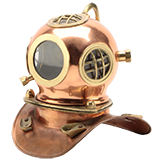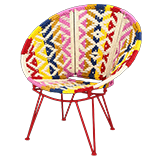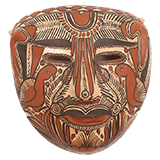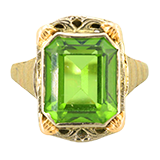Henri Cartier-Bresson Rotogravure "Children in Juchitán, Mexico," 1940s
Item Details
Henri Cartier-Bresson (French, 1908 – 2004)
Children in Juchitán, Mexico, 1940s
Rotogravure on paper
Unsigned
Pulled from Verve, no. 1
Published by Tériade, Paris
Attribution label to verso
Born in Chanteloup-en-Brie, France in 1908, Henri Cartier-Bresson was a pioneer of street photography and one of the most preeminent and influential photographers of the 20th century. A master of candid photography, Cartier-Bresson famously utilized a small Leica 35 mm camera wrapped in black tape to capture images inconspicuously. Starting his career in Paris, the artist was influenced by his socialization with the Surrealist movement as well as his later work assisting the renowned humanist filmmaker Jean Renoir. Henri Cartier-Bresson achieved renown for his globe-trotting work that documented the smaller-scale, human side of major world events, including the Spanish Civil War, the liberation of Paris from Nazi occupation, the victory of the Communist Revolution in China, and the funeral of Mahatma Gandhi. Cartier-Bresson received numerous awards over his lifetime, including France’s Grand Prix National de la Photographie in 1981 and a Lifetime Achievement Award in 2003 from the Lucie Awards. Today, his work lives on in Magnus Photos, the internationally-respected cooperative photography agency that Cartier-Bresson co-founded in 1947, as well as in the collections of art institutions such as the Museum of Modern Art in New York, the Bibliothèque Nationale in Paris, and the International Center of Photography.
Condition
- no significant condition issues to note.
Dimensions
- measurements of frame; image measures 8.5" W x 11.5" H.
- Item not examined outside of mounting.
- Please note, if the warehouse transfer to Cincinnati option is selected by the winning bidder, the item will be available in Cincinnati for pickup after three business days after payment has been finalized.
Item #
ITMGK54335





























